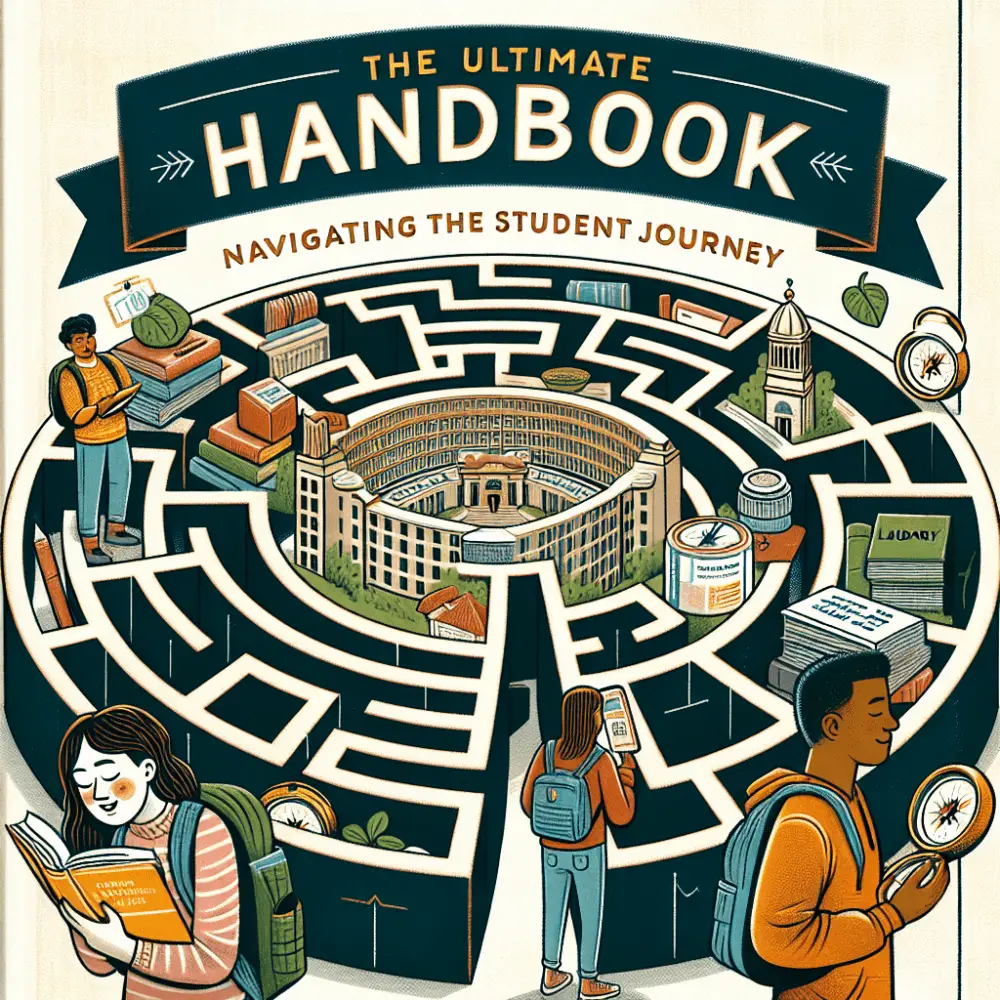
Embarking on the student journey can be both exciting and daunting. It is a time filled with new experiences, challenges, and opportunities for personal and academic growth. Whether you are a high school student preparing for college or an adult considering returning to education, this handbook aims to provide all the information you need to successfully navigate the student journey.
From choosing the right school or program to managing your time effectively and excelling academically, this ultimate handbook covers it all. With practical tips, advice from experts, and answers to frequently asked questions, you will be equipped with the knowledge and resources to make your student journey a smooth and rewarding one.
Choosing the Right School or Program
The first step in embarking on your student journey is selecting the right school or program that aligns with your goals and interests. Consider factors such as location, reputation, curriculum, extracurricular activities, and support services offered. Research different institutions online, attend virtual college fairs or campus visits if possible, and talk to current students or alumni to get firsthand insights.
Additionally, understanding your career aspirations can guide your choice of program. If you have a specific career path in mind, research whether your chosen school offers relevant programs or majors that will support your goals. Use online resources such as career assessment tools or informational interviews with professionals in fields that interest you.
Effective Time Management
Managing your time effectively is crucial for balancing the various demands of student life. Here are some strategies to help you stay on track:
- Create a Schedule: Use a planner or digital calendar to map out your classes, study sessions, assignments, and extracurricular activities.
- Prioritize Tasks: Identify the most important tasks and focus on completing them first.
- Avoid Procrastination: Break down large projects into smaller, manageable tasks and set deadlines for each.
- Stay Organized: Keep your study materials and notes in order, and regularly update your schedule.
- Take Breaks: Schedule short breaks to rest and recharge, preventing burnout.
Excelling Academically
Achieving academic success requires dedication and effective study habits. Consider these tips to enhance your learning experience:
- Active Participation: Engage actively in class by asking questions and participating in discussions.
- Develop Good Study Habits: Find a quiet study space, use effective note-taking techniques, and review your notes regularly.
- Utilize Resources: Take advantage of tutoring services, study groups, and academic support centers on campus.
- Seek Help When Needed: Don’t hesitate to ask for help from professors, advisors, or classmates if you’re struggling with a subject.
Maintaining a Healthy Work-Life Balance
Balancing academics with personal life is essential for overall well-being. Here’s how you can maintain a healthy work-life balance:
- Schedule Downtime: Allocate time for relaxation and activities you enjoy.
- Practice Self-Care: Engage in regular physical activity, maintain a healthy diet, and ensure you get enough sleep.
- Limit Overcommitment: Be selective about extracurricular activities to avoid becoming overwhelmed.
- Seek Support: Reach out to counselors or support groups if you’re experiencing stress or personal challenges.
Frequently Asked Questions (FAQ)
Q: How do I stay motivated during challenging times?
- A: Staying motivated during challenging times can be tough, but it is essential for your success. Consider setting short-term goals, rewarding yourself for progress made, seeking support from friends or mentors, and practicing self-care activities that rejuvenate you.
Q: What financial assistance options are available for students?
- A: There are various financial assistance options available for students, such as scholarships, grants, work-study programs, and student loans. Research and apply for scholarships specific to your field of study or demographic background. Additionally, fill out the Free Application for Federal Student Aid (FAFSA) to determine your eligibility for federal and state aid.
Q: How can I balance my academic workload with extracurricular activities?
- A: Balancing academics with extracurricular activities requires effective time management skills. Prioritize your tasks by creating a schedule or to-do list, breaking down larger assignments into smaller parts, avoiding procrastination, and learning to say no when necessary.
Q: What resources are available on campus to support student success?
- A: Most campuses offer a range of resources to support student success. These may include academic advising centers, tutoring services, writing centers, career development offices, counseling services, and clubs or organizations related to your interests. Take advantage of these resources to enhance your learning experience.
Q: How can I make the most of my college experience?
- A: To make the most of your college experience, step out of your comfort zone and get involved in campus activities and organizations. Build meaningful connections with peers and professors, participate in internships or research opportunities related to your field of interest, and take advantage of networking events or career fairs.
This ultimate handbook is designed to guide you through every step of your student journey, ensuring you have the tools and knowledge to succeed academically and personally.




![When is the best time to apply for colleges in 2023? [Perfect Answers] ethnic psychologist writing on clipboard during session](https://www.pickascholarship.com/wp-content/uploads/2023/04/Pexels-ethnic-psychologist-writing-on-clipboard-during-session.jpg)












